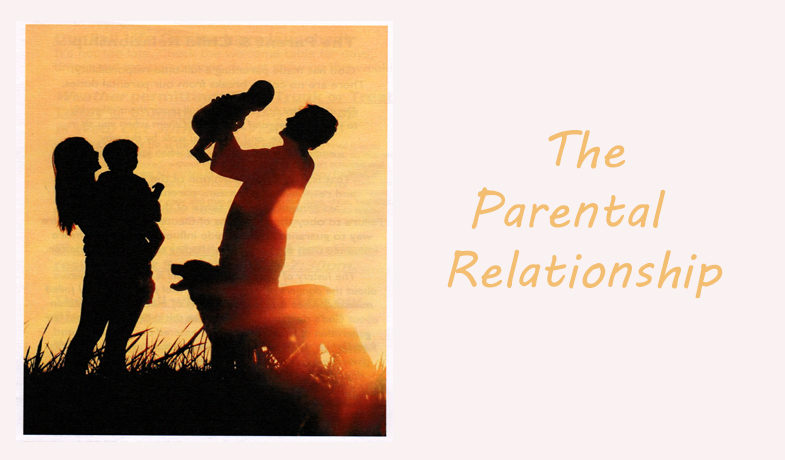The Parent & Child Relationship
God has made parenting a full-time responsibility.There are no coffee breaks from our parental duties.
Deuteronomy 6:7 And you shall teach them diligently to your children, and shall talk of them when you sit in your house, and when you walk by the way, and when you lie down, and when you rise up.
That is God’s own definition of the parents’ task and responsibility. It means parenting is a full-time assignment in every sense of the expression. Failure to obey the guidelines of Deuteronomy 6:7 is a sure way to guarantee that outside influences will have more
influence than the parents in shaping the child’s character.
The history of Old Testament Israel is an object lesson about the dangers of neglecting this vital principle. Israel failed miserably when it came to the duty of teaching their children about God’s righteousness. Consider this telling verse about the generation of Israelites who first entered the Promised Land. Remember, this was merely one generation after God had first given the Law at Sinai: “The people served the LORD all the days of Joshua, and all the days of the elders who outlived Joshua, who had seen all the great works of the LORD which He had done for Israel. . . . When all that generation had been gathered to their fathers, another generation arose after them who did not know the LORD nor the work which He had done for Israel.” (Judges 2:7, 10).
Parents, take inventory in your own hearts.
Is your own commitment to Christ what you hope to see in your children’s lives? Is your love for God and obedience to His Word the same kind of submission you long to see from your own kids?
The Parents’ Role
If we want to measure the success of parenting, we should measure it by what the parent does, not by what the children do.
The true measure of success for Christian parenting is the parents’ own character. To the degree that we have followed God’s design for parenting, we have succeeded as parents before God. As a general rule, parents who follow biblical principles in bringing up their children will see a positive effect on the character of their children.
“Often, parents are partly to blame for their wayward children’s rebellion. And it has been my observation over the years that parents are generally more to blame for wayward kids than society, or peers, or any of the other influences parents tend to blame.” John MacArthur
God Himself has given the responsibility for raising children to parents, not to schoolteachers, peers, child-care workers, or other people outside the family. They can be a great blessing and help or hindrance in your child’s life. However, it is wrong for parents to attempt to unload that responsibility or shift the blame when things go wrong.
Despite how it may appear at different developmental phases: A child’s most important influence comes from parents, not their peers.
When we parents complain that our kids’ failures are their friends’ fault, we must also consider that ultimately we must therefore be to blame. This is because the parents were the ones who allowed children’s peers to have more input into their lives than themselves.
What to do and What not to do?
Training or nurturing is not simply passing on bodies of information, educating them in that sense, but forming them.
What not to do: Don’t exasperate your children.
What to do: Bring them up in the training and instruction of the Lord.
Ephesians 6:4 says, “Fathers, do not exasperate your children; instead, bring them up in the training and instruction of the Lord.”
1. Don’t exasperate your children. Don’t give them too many rules; but the ones you do lay down, enforce. Don’t constantly tease them to the point of discouragement.
2. Recognize that children are different. Different from you, and from each other. What worked wonderfully for child number one may be an absolute disaster for your second child. Not exasperating our children also means learning, valuing, and respecting their differences. Every child must be allowed to be him or herself. Wise parents recognize that not all the non-conforming responses of childhood deserve to be styled ‘rebellion.’
3. Discipline for attitude, not merely for performance. Know when to cut them some slack, as they grow older.
“Chasten your son while there is hope, and let not your soul spare for his crying.” (Proverbs 19:18) It’s not easy. No one likes to hear a child cry, but God says, ‘You’d better start early.’
You let the pain of the discipline or spanking be greater than the pleasure of the sin so that nothing could induce him to solicit another one. Discipline is for correction and repentance, because you love your child. If he or she disobeyed, work not only for correction, but teach that all our disobedience is a sin against God.
Parents, we are responsible for our children.

